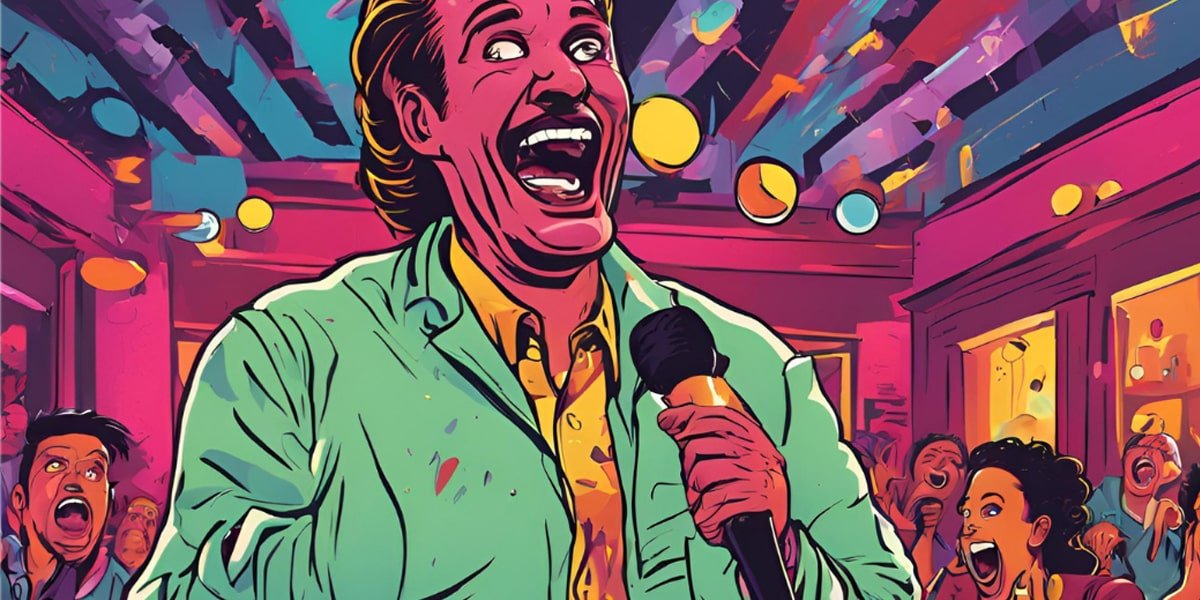The Art and Psychology of Dark Humour

Dark humour, also known as black comedy, bleak comedy, or gallows humor, is a comedic style that addresses serious, taboo, or distressing subjects with a humorous twist. This genre of comedy often provokes discomfort while simultaneously encouraging reflection and amusement. It can deal with a range of topics, from death, disease, and social issues, allowing individuals to confront unpleasant realities through humor.
Characteristics of Dark Humor
Taboo Subjects: It deals with subjects that are not typically discussed, such as death, violence, tragedy, war, or fear of existence.
Irony and Satire: This type of humor is likely to use irony, sarcasm, and satire to elicit surprise and sometimes uncomfortable laughter from audience.
Absurdity: Dark jokes emphasize the absurdity of bleak facts and make them look silly or laughable.
Coping Mechanism: Dark humor is a means of coping with individual or collective adversity for a few, providing a channel for the processing of complicated emotions.
Subversiveness: It defies conventional norms and ventures to say something others would not, sometimes being critical of hypocrisies in society or pointing out double standards.
Few Examples of Dark Jokes
Dark humor often manifests in jokes that play on dark subject matters. You can find few examples of dark jokes here:
- “Why are cigarettes good for the environment? They kill people.”
- “My grief counselor died. He was so good, I didn’t even cry.”
- “I told my doctor I broke my arm in two places. He told me to stop going to those places.”
- “I asked my girlfriend if I was the only one she was seeing. She said yes, all the others are hideous.
- I used to think I was indecisive, but now I’m not so sure.
- I told my therapist I was hearing voices in my head. He said you don’t have a therapist.
- A man walks into a library and asks for books about paranoia. The librarian whispers, “They’re right behind you!”
These jokes show how dark humor can cause laughter at the same time addressing serious topics in a light-hearted manner.
Historical Context
The term “dark humour” was originally coined by Surrealist writer André Breton in the 1930s and later associated it with the work of Jonathan Swift. Breton’s anthology had brought it into public attention and has revealed this kind of humor in cynicism and skepticism about human existence. The phenomenon exists in literature and folklore, where it has been used to provide relief during conditions of the highest distress.
Psychology of Dark Humour
Cognitive Processes
Studies have found that enjoyment and comprehension of dark humour require greater cognitive resources because of the need to resolve incongruity between the humor and the horrific topic.
Personality Traits
Dark humour enthusiasts are likely to be high on intelligence, emotional stability, and openness to experience. Dark humor enthusiasts are less sensitive to insult.
Coping Mechanism
Dark humour can serve as a defense, allowing individuals to deal with trauma, fear, or undesirable facts. As a case in point, healthcare providers such as physicians and paramedics often use gallows humor to deal with stress.
Offense and Morality
Use of dark humor can be transgressive with regards to morals. Some view it as harmless or even essential, while others view it as offensive or disrespectful, respectively, depending on context and recipients.
Criticism and Controversy
Dark humour is extremely polarized as a genre of comedy, and how people receive it depends heavily on culture, individual tolerance, and circumstance of delivery. To critics, dark humour is fine however, it can easily turn into offense, especially if targeting marginalized groups or make fun of major social issues. There is also concern it desensitizes the general public to authentic and real issues of community so much so that it makes them look or sound normal or less important when they do not.
On the other hand, dark humor enthusiasts consider it a good way of making conversation about difficult subjects in a way that appears more appealing and less intimidating. Through employing humor to put bitter truths, it allows for people to attack their phobias, frights, tensions, and bitter truths with their funny tone. For others, it is not laughing time – yet it is the way in which they endure the subtleties of existence, discover meaning and camaraderie even amid its darkest extremes. Love or hate, dark humor shall be sure to court controversy, turn assumptions inside out, and make us keep in mind the reality that in dire circumstances, laughter is indeed a lifesaver.
Why Dark Humor Matters
Dark humour is not just about finding homour on the dark side of life. In fact, it is about finding positive aspects in the face of life’s challenges. It tells us that even in the worst of times, humour can be a powerful tool for connection, reflection, and healing. You can hate it or love it, but dark humour forces us to confront the uncomfortable, one joke at a time.